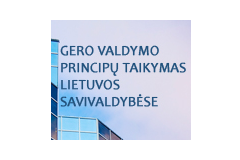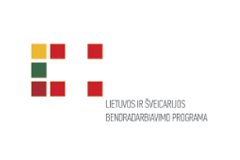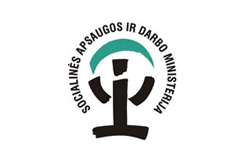Tax system for NGOs

Information about the taxes that NGOs must pay is presented below:
Profit tax
Though NGOs are considered to be non-profit organisations, they have the right to conduct economic-commercial activities and in turn, generate income and profit. If the generated income from the economic-commercial activities is not used up in the organisation's operations, then it is considered to be a profit and taxed accordingly:
- The organisations, whose profits do not exceed 1 million litas, pay a profit tax of 15% for any profit generated from economic-commercial activities exceeding 25,000 litas (i.e., profits earned below the 25,000 litas threshold are taxed at a rate of 0%, all profits above this sum are taxed at a rate of 15%).
- The organisations, whose profits exceed 1 million litas, pay a profit tax of 15% on all profit generated from economic-commercial activities.
________________________________________
VAT (value added tax)
- The organisations, whose profits generated by economic-commercial activities do not exceed 155,000 litas, do not need to register as VAT payers. Though it is possible to register as a VAT payer voluntarily, if the profits generated from economic-commercial activities exceed 10,000 litas.
- Organisations, whose profits generated by economic-commercial activities exceed 155,000 litas must register as VAT payers.
________________________________________
Taxes associated with working individuals
If at least one employee is employed, the organisation (as well as the employee) must pay:
- Personal income tax (GPM) (15%). Traditional religious communities are exempt from this tax.
- Compulsory health (PSD) and social insurance (SODRA) contributions (6%+3%)
- PSD and SODRA contributions paid by the employer (organisation) (30.98%+0.2%)
________________________________________
Voluntary work
Organisations that do not have employees and only work with volunteers do not pay any taxes associated with employment.
________________________________________
Additional information about public procurement:
Organisations, whose income is more than 50% funded by government institutions (in whatever form, i.e., support for project implementation and other forms, except for services granted) must register as a contracting authority and abide by the Law on Public Procurement when purchasing any kind of products or services.
________________________________________
The Law on Personal Income Tax of the Republic of Lithuania (hereinafter referred to as PITL) provides citizens permanently residing in Lithuania the right to donate up to 2% of the Personal Income Tax they have paid during a reference year (calendar year) to an organisation of their choice that, according to the Law on Charity and Support Foundations of the Republic of Lithuania (hereinafter referred to as CSFL) has the right to receive support (charity and support foundations, budgetary institutions, associations, non-governmental organisations, public institutions, religious communities, communions and centres, divisions of international non-governmental organisations and other legal entities, whose activities are regulated by special laws and whose purpose is not to gain profit for the founders, shareholders or members).
According to Art. 34 of the revised Law on Personal Income Tax of the Republic of Lithuania, No. XI-1778, approved on December 6, 2011, a permanent resident of Lithuania can donate 1% of their personal income tax to a political party registered in the Register of Legal Entities, with the appropriate number of political party members required by law, and which is not in the process of being reorganised or liquidated.
A permanent resident of Lithuania can donate up to 2% of their personal income tax to one or several receivers, and/or up to 1% to one or several political parties.
If a permanent resident of Lithuania wishes to donate a part of their personal income tax to a cause that has the right to be supported according to the CSFL or a political party that meets the requirements of the law, they must fill in the FR0512 document template.
By order no. VA-16 of the director of the State Tax Inspectorate under the Ministry of Finance of the Republic of Lithuania, the following was approved on February 17, 2012:
- a new edition of the request form for donating part of personal income tax to entities that have a right to receive support, and/or political parties − FR0512 form (version 02) and the additional FR0512P form (version 02) (hereinafter referred to as the FR0512 form (version 02));
- guidelines for filling in the FR0512 form and the FR0512P additional form, requesting to transfer a part of personal income tax to entities that have the right to receive support, and/or political parties.






